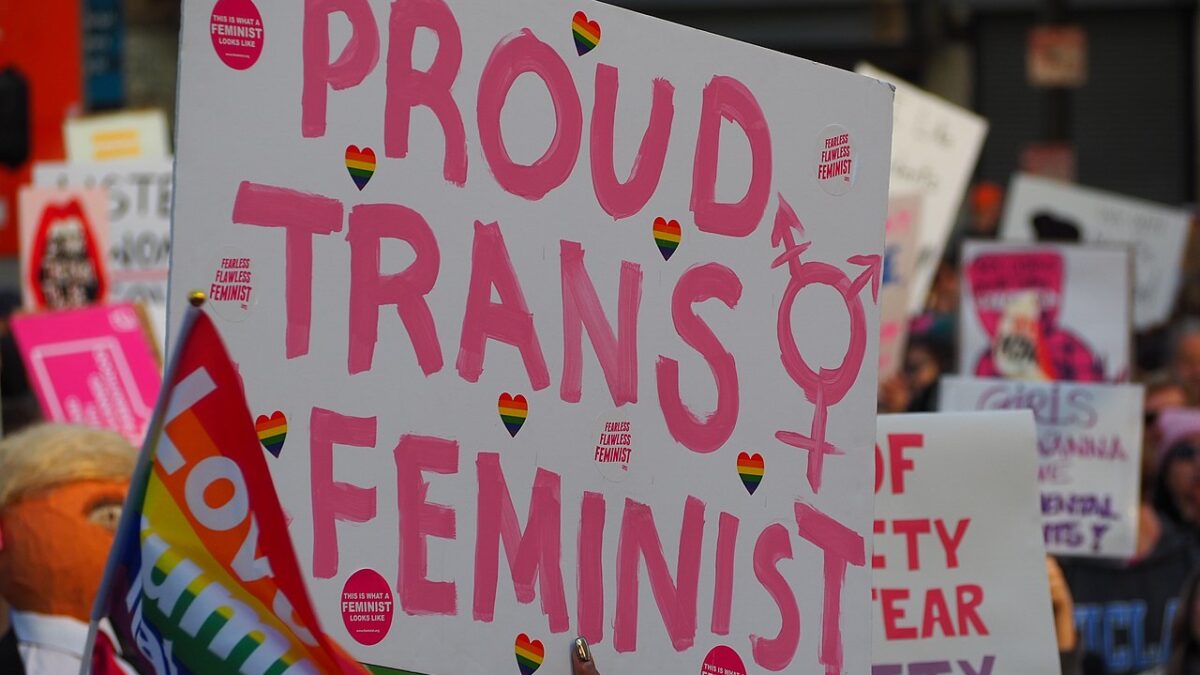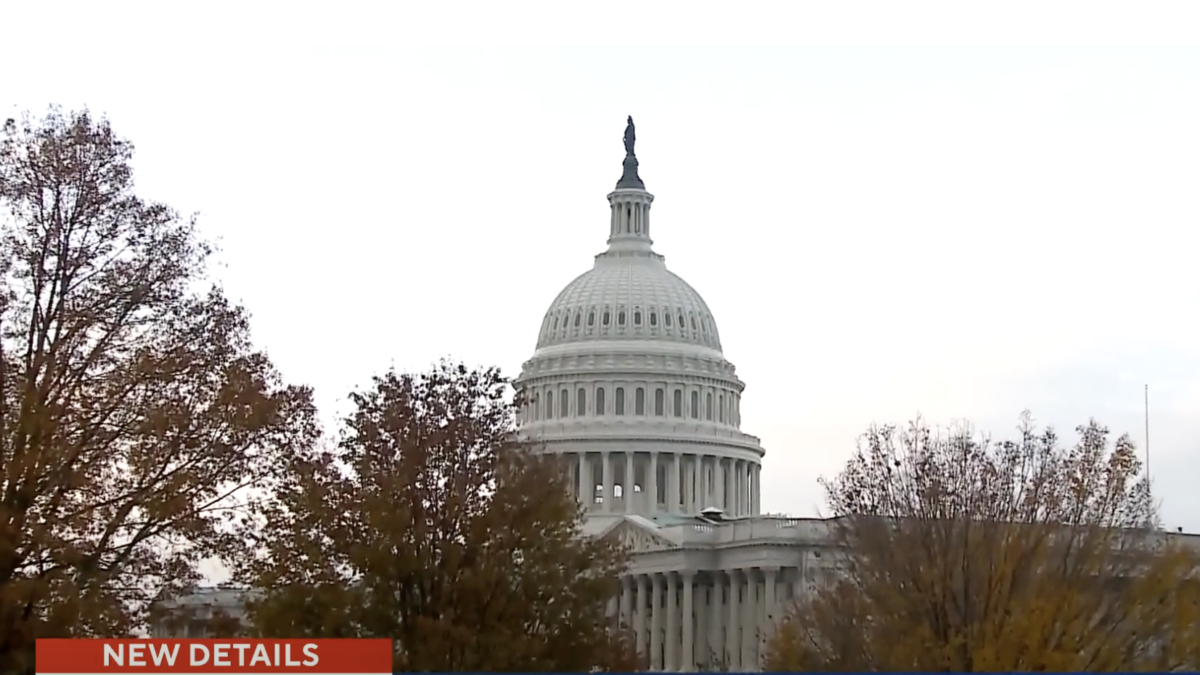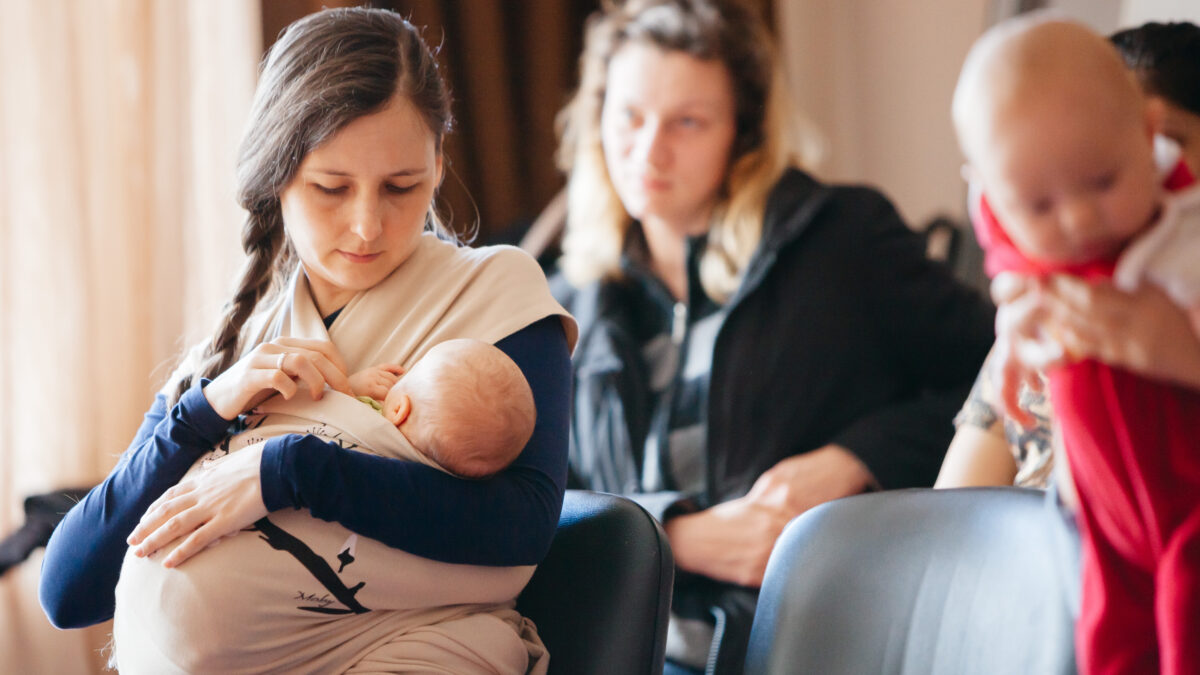
Earlier this month, Minnesota Sen. Al Franken made a revealing comment at a gala celebrating the thirtieth anniversary of EMILY’s List, the nation’s most influential abortion rights political action committee. “First of all,” he quipped as he began his introduction of the group’s president, Stephanie Schriock, “I apologize for being a guy.”
The former Saturday Night Live actor’s jest probably earned him a few laughs. But it also hinted at the absurdity of what has become an increasingly common refrain among abortion advocates—that reproductive issues are (or ought to be) the domain of women alone.
Franken’s remark was tame compared to what other abortion supporters have said. In 2013, former Sen. Alan Simpson told the Los Angeles Times that “men legislators shouldn’t even vote on” abortion. The year before, a Huffington Post writer penned a column titled: “New Rule: Only Women Legislators Should Be Allowed to Vote on Women’s Issues.”
Sit Down, Men, You Have Nothing to Do with Babies
The idea that men should keep quiet on reproductive issues undergirds much of Democrats’ ridiculous “war on women” attack against conservatives. To take one example, during Wendy Davis’s famous filibuster of a pro-life bill, the then-Texas state senator suggested that her male colleagues might not care about abortion rights because they “have never ever had to face [an unplanned pregnancy] and will never face it, because you don’t have the equipment. [But] I’ve got it and my daughters have it, and other women that I care about have it, and women who I don’t know have it.”
There are at least four problems with this line of thinking. First, those who employ it seem to believe that because women bear the physical and emotional burdens of pregnancy, they are more likely than men to support abortion. But that’s not true. Women’s views on abortion roughly align with those of men. And some polling has found that women are likelier than men to take the “no exceptions” pro-life position.
Second, if abortion advocates who believe men shouldn’t comment or vote on women’s issues were logically consistent, they would also support barring women from weighing in on “men’s issues.” But no one has proposed that (nor should they). When California Sen. Barbara Boxer introduced the National Prostate Cancer Plan Act earlier this year, nobody suggested that she withdraw her sponsorship because, as a woman, she doesn’t, as Davis might put it, have the equipment.
Likewise when various congressional committees have held hearings on National Football League concussions and steroids in baseball, we don’t remember anyone ever proposing that women legislators recuse themselves because women don’t play in either the NFL or the major leagues.
Politics Could Never Work This Way
Taken a step further, Simpson’s logic might mean that the opinions of abled-bodied people should be discounted when considering policies that deal with disability. Or that the votes of immigrant legislators should count for more than those of the native-born on bills that address immigration. The possibilities—and the absurdities—are endless.
Third, when politicians vote, they don’t (or shouldn’t) consider only their own interests; they’re elected to office to represent their constituents. When Boxer introduced her prostate cancer bill, she may or may not have had strong personal convictions about improving prostate cancer screening and early detection. But she introduced the bill as the elected representative of millions of the people who live in her state, including the nearly 20,000 California men who are diagnosed with prostate cancer every year.
Similarly when Arizona Republican Trent Franks introduced the Pain Capable Unborn Child Protection Act in January, he had strong personal reasons for doing so. He was born with congenital defects including a cleft palate, and his brother had Down syndrome. When diagnosed prenatally, cleft palate and Down syndrome usually lead to abortion.
But Franks almost never alludes to his personal story when speaking about his pro-life position. When introducing the Pain Capable bill, he instead described it as legislation “all humane Americans can support if they understand it for themselves.”
Abortion Is Also a Men’s Issue
Which gets us to problem number four. Unlike prostate cancer and football concussions, abortion’s primary effects cross the gender line. Two lives are affected in an abortion, and the defenseless one has a roughly 50-50 chance of being a boy.
Science has also shown that men can be profoundly affected after a partner has given birth, miscarried, or aborted a pregnancy. New research out of the University of Wisconsin suggests that bonds between children and their fathers are created during the “magical moment” when fathers see the ultrasound image of their unborn child.
To be sure, women should be given a certain amount of deference when these issues arise. After all, it is women—not men—who are sometimes abandoned to deal with the effects of reproductive decisions. No amount of book learning or study can compare with the lived experiences of women when it comes to pregnancy and its various outcomes.
But this shouldn’t preclude men’s involvement or prevent them from speaking up. In fact, most abortion advocates really don’t want men to remain silent—so long as they support abortion.
Consider a recent fundraising email from NARAL Pro-Choice America. With the subject line: “I’m a man. I support abortion rights,” John Brougher, NARAL’s chief technology officer, writes:
As a man, people sometimes ask me why I work to defend abortion rights.
My answer: How could I not?
Brougher goes on to announce that NARAL has launched a group called Men for Choice “to mobilize the support we need among men as well as women.”
Consider also Gene Novogrodsky, a 76-year-old Texas man recently lauded by Planned Parenthood for biking 300 miles to raise money for the billion-dollar abortion business. “I have daughters, I have a wife. These issues are important to me because I care about the health and well-being of my family,” Nonogrodsky told reporters, when asked about his motivation for riding.
What abortion advocates really seek is not to silence men per se, but to muzzle anyone—male or female—who opposes their ideas and agenda. But, like Novogrodsky, pro-life men have wives and daughters about whose health and well-being they care deeply. They, too, should be free to speak and vote their minds on the important issues that affect them—and to do so without apology.









